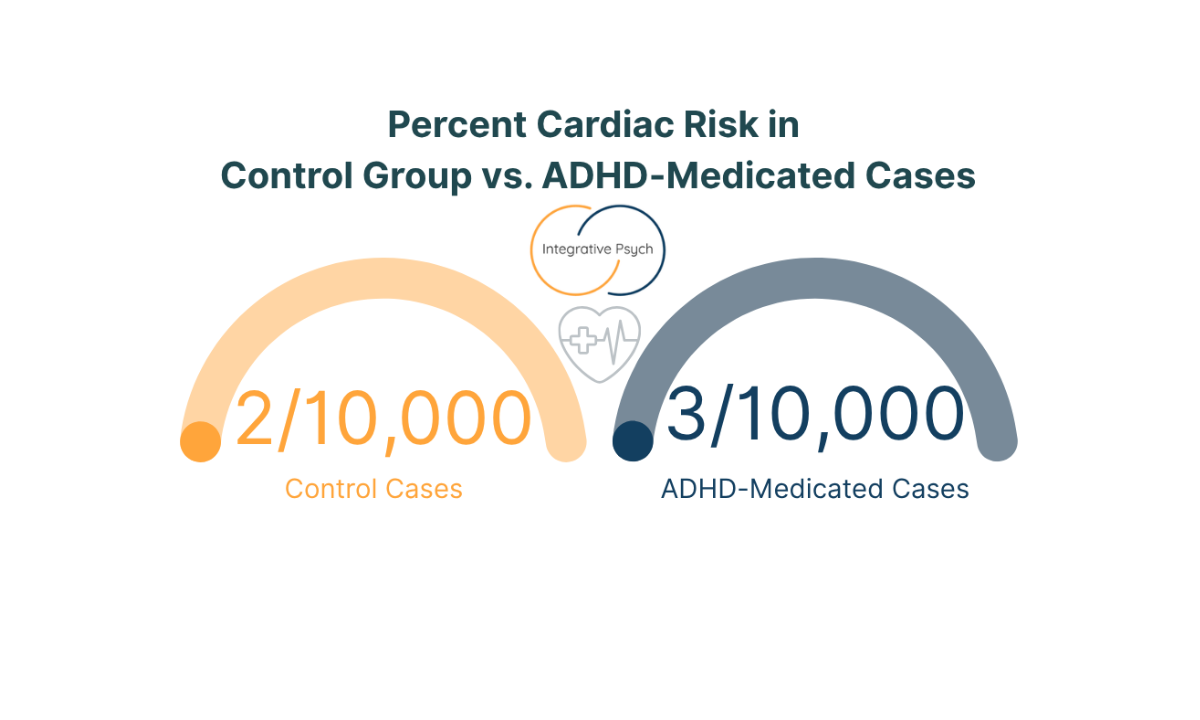
New York, NY – July 29, 2025 – Qwoted Newswire – A new Swedish national study published this month in Acta Pædiatrica highlighted a statistically significant association between attention deficit hyperactivity disorder (ADHD) medications, both stimulants and non-stimulants, and cardiac risk in adolescents. While there is an association between ADHD medication usage and increased cardiac events, Columbia University psychiatrist and founder of Integrative Psychiatry, Dr. Ryan Sultan, notes that the risk is still very low. Most of the associated cases comprised undefined arrhythmias rather than more serious cardiac events. Luckily, the data reflected no associations with cardiac arrests, defined arrhythmias, or congenital heart disease (CHD), indicating appropriate measures of caution have been taken by ADHD-medication prescribers.
Drawing hundreds of thousands of records from a national Swedish registry of those aged 5-30 years, the study found that matched controls were less likely to experience a cardiac event than the ADHD cases – although this is accurate, the percentage of patients who experienced a cardiac event while utilizing ADHD medications was 0.5%, while the control was 0.2%. While this is a scientifically significant association, it is clinically minor, and a small identifiable population is impacted. The adjusted odds ratio (aOR) was 1.63 for those taking ADHD medications, indicating that patients currently using ADHD medications were 63% more likely to experience a cardiac issue in comparison to non-using patients. Even though this percentage increase initially appears concerning, actualizing these percentages clarifies their limited clinical relevance. For every 10,000 non-using patients, two would be expected to experience a cardiac event, and for every 10,000 ADHD-medicated patients, just over three people would likely undergo a cardiac problem. While it is unlikely, we encourage screening for those who are concerned about the potential cardiac risks.
It should also be noted that populations with preexisting cardiac conditions and disorders were not excluded from this study, which contributed to conflated results. Once comorbidities were accounted for, the adjusted odds ratio notably decreased from 2.46 to 1.63. Additionally, it is hard to know if the association between ADHD medication use and cardiac events is a result of the medication, rather than being due to the neurology and chemical predisposition of people with ADHD.
Medication management is an integral part of ADHD treatment. While there are risks associated with these medications, there are risk factors and possible side effects to consider with any medicine. Like all medications, ADHD prescriptions–both stimulant and non-stimulant–have potential side effects. When carefully managed, though, the benefits of these medications often outweigh the risks. There are so many benefits to treating ADHD with non-stimulant and stimulant prescriptions, such as lowering adverse outcomes, such as accidents and substance misuse.
This study may prompt further research analyzing the correlations with ADHD medications and various risks, but they are unlikely to majorly shift clinical recommendations. Cardiovascular monitoring, especially in more vulnerable populations, has been and will continue to be common practice. For the majority of people struggling with attention disorders, ADHD medications will continue to be widely considered as safe, primarily advantageous, and effective treatment under the appropriate medical supervision.
ReferencesElmowafi, H., Kindblom, J. M., Halldner, L., Gyllenberg, D., & Naumburg, E. (2025). Children and young adults who used medication for attention deficit hyperactivity disorder faced increased cardiac risks. Acta Paediatrica. Advance online publication. https://doi.org/10.1111/apa.70215
NewMediaWire. (2025, June 30). Swedish study finds attention‑deficit/hyperactivity disorder (ADHD) medications linked with safer outcomes [Commentary by Dr. Ryan Sultan]. Yahoo Finance. Retrieved July 22, 2025, from https://finance.yahoo.com/news/swedish-study-finds-attention-deficit-033000976.html
Skoglund, C. et al. (2025). Increased prescribing of ADHD medication and real-world outcomes over time: a Swedish self-controlled case series study. Acta Paediatrica https://onlinelibrary.wiley.com/doi/full/10.1111/apa.70215
About Integrative Psychiatry
Integrative Psychiatry is a mental health practice led by Dr. Ryan Sultan. The clinic provides comprehensive psychiatric and therapeutic services for children, adolescents, and adults, utilizing a holistic, evidence-based approach tailored to each individual’s unique needs. From ADHD, anxiety, and depression treatment to OCD, addiction, and trauma therapy, Integrative Psych’s multidisciplinary team provides personalized care to help clients achieve long-term well-being.
Dr. Ryan Sultan
Ryan S. Sultan, MD, is the Director of Integrative Psychiatry, an Assistant Professor of Clinical Psychiatry at Columbia University Irving Medical Center, and leads the Sultan Lab for Mental Health Informatics at Columbia’s Department of Psychiatry.
Social Links
Information contained on this page is provided by an independent third-party content provider. Binary News Network and this Site make no warranties or representations in connection therewith. If you are affiliated with this page and would like it removed please contact [email protected]



Comments